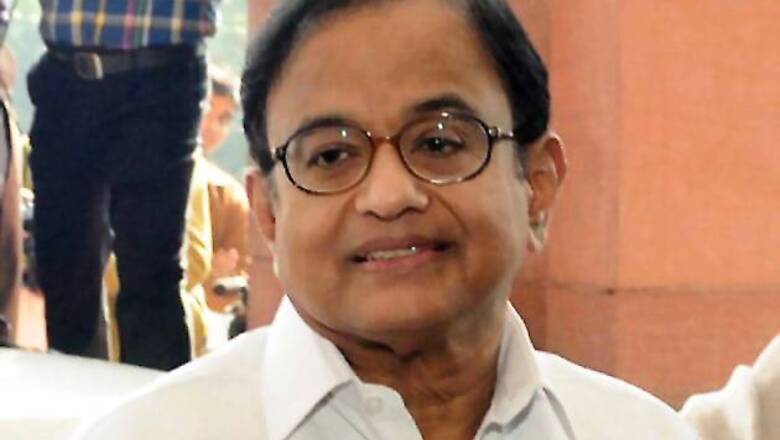
views
Mumbai: Finance Minister P Chidambaram sought to ease concerns it was targeting double taxation treaties on Friday, saying a proposal that sparked alarm among foreign investors was clumsily worded.
Chidambaram's reassurances mark the second day in a row the minister has had to address the confusion sparked by the amendment unveiled on Thursday, which appeared to give Indian tax authorities wider latitude to target investors benefiting from double taxation agreements.
That amendment, tucked in a Finance Bill tabled with parliament, had wide market repercussion, coming a year after poorly written rules to ensnare tax evaders had sparked an outcry among foreign investors and forced the government to amend provisions and delay implementation for two years.
The proposal was part of the budget for the fiscal year starting in April, which disappointed investors with a surge in government spending and new taxes on the rich and large companies.
"It has not become law yet. It's a bill. When I read that clause again, I said it is clumsily worded," Chidambaram said in an interview with ET Now TV.
Chidambaram added the government would not question the validity of tax residency certificates (TRC) held by foreign investors who are based in countries with double taxation treaties with India.
The amendment on Thursday had said the TRC, which effectively exempts the holder from paying taxes in India, "shall be necessary but not a sufficient condition for claiming any relief" under the double taxation agreements.
Foreign investors had expressed worries that India could begin to question the validity of those certificates altogether.
Chidambaram's clarification came after the Finance Ministry issued a statement addressing another key concern, specifying that foreign investors based in Mauritius would not be affected by the "beneficial ownership" clause that India imposes on some of its double taxation treaties.
Mauritius is a popular source of foreign investments into India, accounting for around 40 per cent of portfolio inflows according to some estimates.
That clause gives tax authorities the power to probe the beneficiary of the taxes under these treaties, which has long concerned foreign banks and brokerages investing in India.
These institutions buy Indian assets on behalf of their clients through subsidiaries with double tax treaties with India, meaning under Indian law, only the banks and brokerages are registered as the foreign investor, while the end investor remains outside the purview of Indian tax authorities.
The ministry said in its statement its double taxation agreement with Mauritius only required a tax residency certificate, though it added that was "pending ongoing discussions" between the two countries.
Chidambaram said until such talks were concluded, the existing treaty with Mauritius would remain unchanged.
"We are in discussions with the government of Mauritius to revise the treaty," Chidambaram told ET Now.
"And unless we have revised the treaty, I don't think we should do anything unilaterally."
Although the reassurances from the finance minister soothed some of the concerns, foreign investors called the poorly worded amendment damaging to India's appeal.
Foreign investors are integral to Indian markets, given the country needs capital flows to plug a current account deficit that hit a record high in the quarter ended in September.



















Comments
0 comment